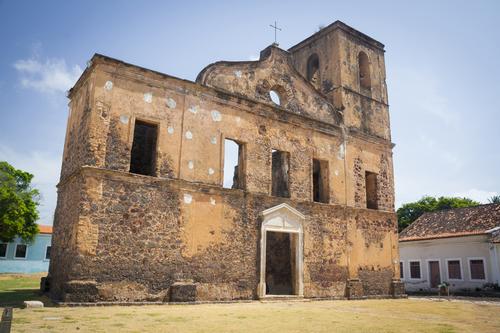 |
 |
26 Aug 2014

Brazilian states fight back to protect cultural heritage from trafficking

By Tom Anstey

|
|


Brazil's churches and chapels are particularly at risk due to lack of security

Photo: Bertolo/Shutterstock.com

|
|
Brazilian states are combating the illegal trafficking of its cultural heritage by exhibiting a collection of more than 150 recovered works of stolen sacred art.
The exhibition is an attempt to return the pieces to their places of origin, while also cataloguing existing works currently in the hands of museums, churches and chapels to prevent further trafficking of the country’s heritage.
The collection includes liturgical objects, sculptures and crucifixes dating to the 18th and 19th centuries and has been recovered by the Prosecutor’s Office of Minas Gerais (MPMG) and restored by the Minas Gerais State Institute of Historical and Artistic Heritage (MSIHA).
Over the past 12 years, the Minas Gerais Office of the Public Prosecutor for Cultural Heritage and Tourism (CPPC) has recorded the loss of 700 objects of cultural value, though it estimates even more have been lost because most of the objects were never catalogued.
Many of the heritage pieces, according to the CPPC, are in the hands of unsuspecting owners or collectors, though the difficulty in proving the origin of the pieces is often a hindrance to their recovery.
According to the United Nations Office on Drugs and Crime (UNODC), profit from transnational crimes related to cultural property is estimated to total between US$3.4bn (€2.6bn, £2bn) and US$6.3bn (€4.8bn, £3.8bn) or 0.8 to 1.4 per cent of all illicit financial transactions worldwide.
For Minas Gerais – one of Brazil’s 26 states – crime against heritage is a real problem, with six out of every 10 recorded sacred artefacts being stolen.
Marcos Paulo Miranda, co-ordinator of the CPPC, has called for a change to Brazilian legislation regarding art thefts, which at present have the same punishment as that for stealing any other object: one to four years in prison.
“The churches across Brazil need to be better monitored, with cameras, alarms and all of the necessary technological apparatuses,” said Miranda speaking to Dialogo. “Another problem is that many pieces are tampered with, so that they cannot be identified, which complicates investigations.”
The state of Rio de Janeiro has an initiative in action to better monitor heritage pieces, using eight specialists – including historians and museum curators from the State Institute of Cultural Heritage (Inepac) – to catalogue sacred works housed in the state’s churches, chapels and museums, with a forecast completion date of 2015, while Minas Gerais is enacting a similar project.
Latin America is poised to become a major market for the attractions industry in the coming decade, with Brazil a particularly promising market, according to Forrec senior creative Gordon Grice.
|

|
| back |
|
|
|
|